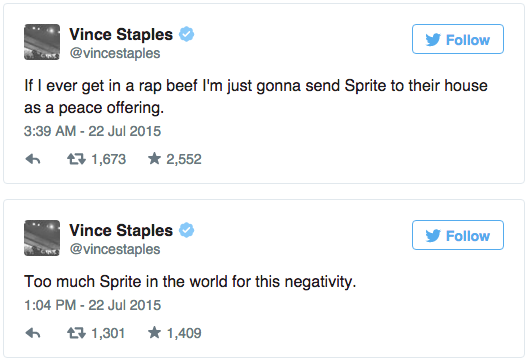Save 50% on a 3-month Digiday+ membership. Ends Dec 5.

Gabe McDonough is an executive producer at bi-coastal music services agency, MAS.
When you’re a music supervisor, there’s always a bittersweet moment when someone else gets to a song you’ve been pitching first. I got that pang when I saw post-pop, hypercolor electronic musician Sophie’s track “Lemonade” turn up in a McDonald’s ad a few weeks ago. I think it’s great. Having a song in a McDonald’s ad feels to me like a legitimate extension of their artistic statement. I have a hunch the main reason that song sold, though, was that it said “Lemonade” repeatedly and the commercial was about lemonade. But that’s the rub of this gig. How do you balance the art with the commerce in this line of work?
As a musician and music fan, it feels enormously satisfying to help launch an artist’s career or bring attention to an older artist who may never have been heard by a wide audience. But I don’t consider myself an A&R man. A&R is about finding great songs and artists. As music supervisors in advertising, our job is to help our clients sell stuff with great songs and artists. How do you turn someone’s head who might be looking down at another screen but also sell to them? How do you make them walk in from the other room because of the music, then turn their attention to the brand? Fundamentally, the musical choice is always predicated on how well it worked with the commercial concept.
It’s gutting when a song that just feels incredible against the picture gets pushed aside because it doesn’t have a lyric that describes exactly what’s happening on the screen — or fails to connect directly enough to the product’s tagline. When a song just feels right, even when the lyrical content and artist might not connect to the product at all, you’re tapping into the deepest magic music has to offer. It’s that powerful, sub-rational feeling that no film or words can even communicate. Feist’s “1,2,3,4” didn’t have anything to do with iPods. Os Mutantes’ “A Minha Menina” was a Portuguese love song that was somehow magically juxtaposed with footage of soccer and french fries for McDonald’s.
Musicians are quantifiably the best celebrities to partner with. Their social media reach and ability to make “sticky” video content is untouchable. Seven of the 10 most-followed people on Twitter are musicians. Ninety-five of the top 100 videos on YouTube are music videos. Musicians are the only celebrities that regularly tour the country in person connecting directly with their audience. Musicians also give people who would never care about a commercial reason to check it out or write about it in the press. Would a website with huge pageviews like Pitchfork normally mention a Delta Faucet commercial? Hell no! But once Wilco drummer Glenn Kotche is in it, it makes the site.
Look at the Pandora’s box of hilarious tweets Sprite unlocked by doing a few projects with rapper Vince Staples. Yeah, they made a spot and had him do an appearance, but the biggest entertainment value that deal brought to me was the way it prompted Staples to just take the brand and run with it on Twitter on a daily basis. Sprite could never step into the Drake/Meek Mill beef themselves, but Staples blasted in there offering up cases of Sprite in exchange for peace.

Ad position: web_incontent_pos1
Is it tongue in cheek? Of course. But who cares? It’s funny as hell. The press is writing about it. People are retweeting it by the thousands and Sprite is magically a real part of a cultural conversation, not sponsoring one.
More in Marketing

Ulta, Best Buy and Adidas dominate AI holiday shopping mentions
The brands that are seeing the biggest boost from this shift in consumer behavior are some of the biggest retailers.

U.K. retailer Boots leads brand efforts to invest in ad creative’s data layer
For media dollars to make an impact, brands need ad creative that actually hits. More CMOs are investing in pre- and post-flight measurement.
Ad position: web_bfu